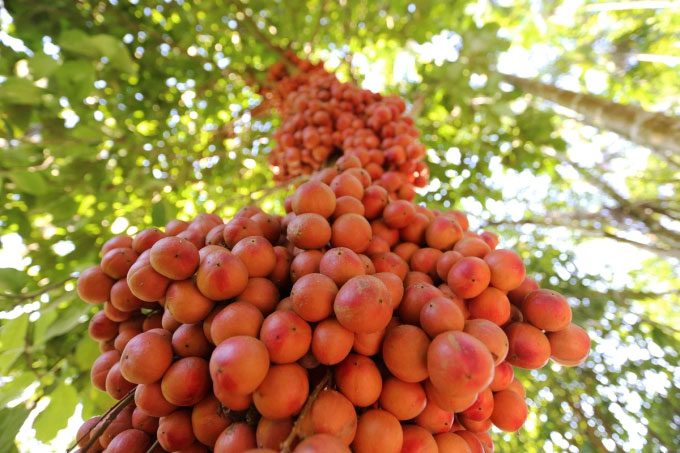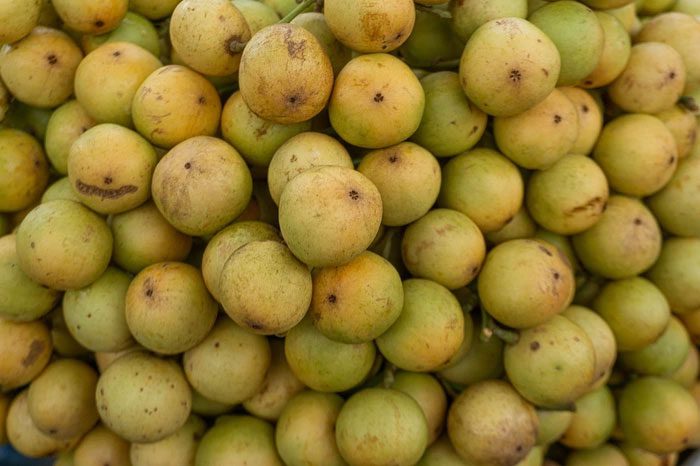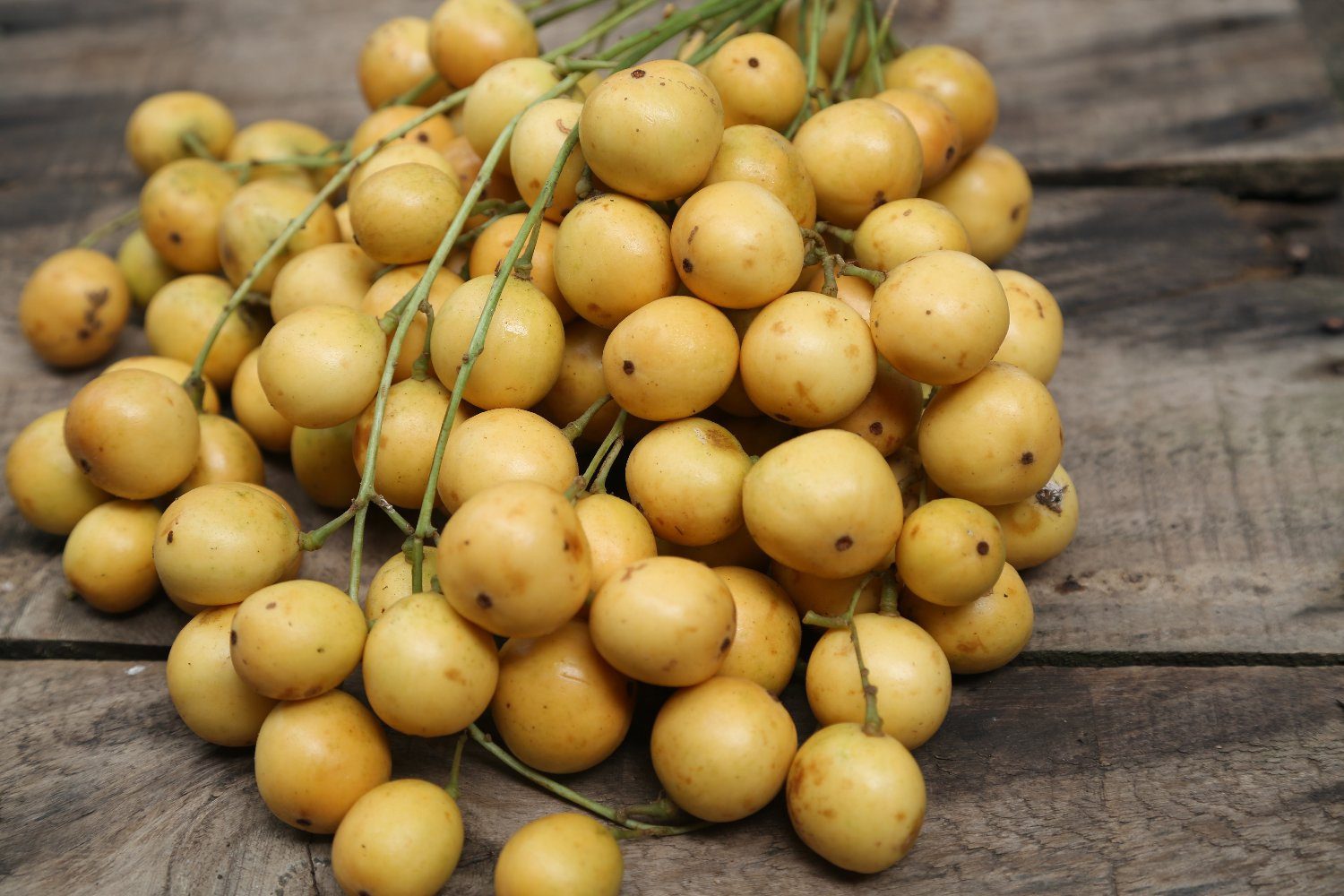The land mulberry typically ripens from June to August. This fruit is popular due to its sweet and sour flavor and light fragrance. Notably, the land mulberry also offers numerous health benefits and is rich in nutrients.
Benefits of Land Mulberry
1. Understanding the Land Mulberry Tree
Land mulberry, scientifically known as Baccaurea ramiflora, is a woody plant with fruit that grows in clusters along the trunk. The fruit is green when immature and turns yellow or pale pink when ripe. Each fruit contains several segments, each with a seed. The land mulberry has a mild sour taste and can be eaten whole, including the seeds.
The land mulberry tree can reach heights of 15-25 meters and has a trunk diameter of 25-70 cm, featuring a round canopy and providing ample shade. The bark, roots, and wood of this tree are harvested for medicinal purposes, sometimes used to treat skin conditions.

The bark, roots, and wood of this tree are harvested for medicinal use. (Image: Internet).
2. Nutritional Value of Land Mulberry
Land mulberry is rich in vitamins and essential minerals for the body, including:
- Water
- Protein
- Fat
- Fiber
- Carbohydrates/Sugars
- Calcium
- Magnesium
- Phosphorus
- Potassium
- Sodium
- Iron
- Vitamin C

Land mulberry is highly nutritious. (Image: Internet).
3. Health Benefits of Land Mulberry
Thanks to its excellent nutritional profile, land mulberry provides numerous health benefits:
3.1. Supports Weight Loss
Fruits and vegetables rich in Vitamin C have been shown to aid in weight loss and help maintain a healthy weight. Renowned nutritionists recommend incorporating these foods into your diet.
Land mulberry is also a great source of Vitamin C, so it should be included in your diet.
3.2. Boosts Immunity
Land mulberry can help enhance immunity due to its relatively high iron content. Red blood cells play a crucial role in healing damaged cells, tissues, and organs as they transport oxygen. Thus, maintaining a balanced diet with sufficient iron-rich foods is essential for good health and preventing numerous diseases.
Additionally, the Vitamin C found in land mulberry can also help boost immunity against viruses and bacteria that cause infectious diseases.

Land mulberry contains Vitamin C, which enhances immunity and helps prevent diseases caused by viruses and bacteria. (Image: Internet)
3.3. Good for Cold Sufferers
Vitamin C is proven to boost immunity, reduce the severity of cold or flu symptoms, and shorten the duration of illness. With its high Vitamin C content, land mulberry can be beneficial when added to the diet of those suffering from colds.
3.4. Beneficial for Bone Health
Land mulberry is good for bones due to its calcium and phosphorus content.
Calcium is an essential nutrient for developing strong bones, particularly for children and young adults. Calcium absorption and bone development peak by age 20 and gradually decline thereafter. Adequate calcium and Vitamin D intake helps increase bone mass in growing children and adolescents.
Like calcium, phosphorus is needed to build a strong skeletal system, generate energy, and enhance muscle strength.

Land mulberry is beneficial for bones due to its calcium and phosphorus content. (Image: Internet)
3.5. Good for Pregnant Women
For pregnant women, supplementing iron before childbirth helps reduce the risk of low birth weight and prevents maternal anemia during pregnancy. Pregnant women should aim for 27 mg of iron daily.
Land mulberry has a relatively high iron content, making it a good addition to the diet for pregnant women. However, mothers-to-be should still ensure they consume a variety of other iron-rich foods, such as red meat, organ meats, and spinach.
4. How to Incorporate Land Mulberry into Your Diet
People can eat land mulberry as a fruit or use it to make drinks or sour soups. Depending on the region, there may be different ways to enjoy this fruit.
There are no specific recommendations for daily intake of land mulberry, but it is advisable to consume it in moderation to avoid digestive issues.


















































